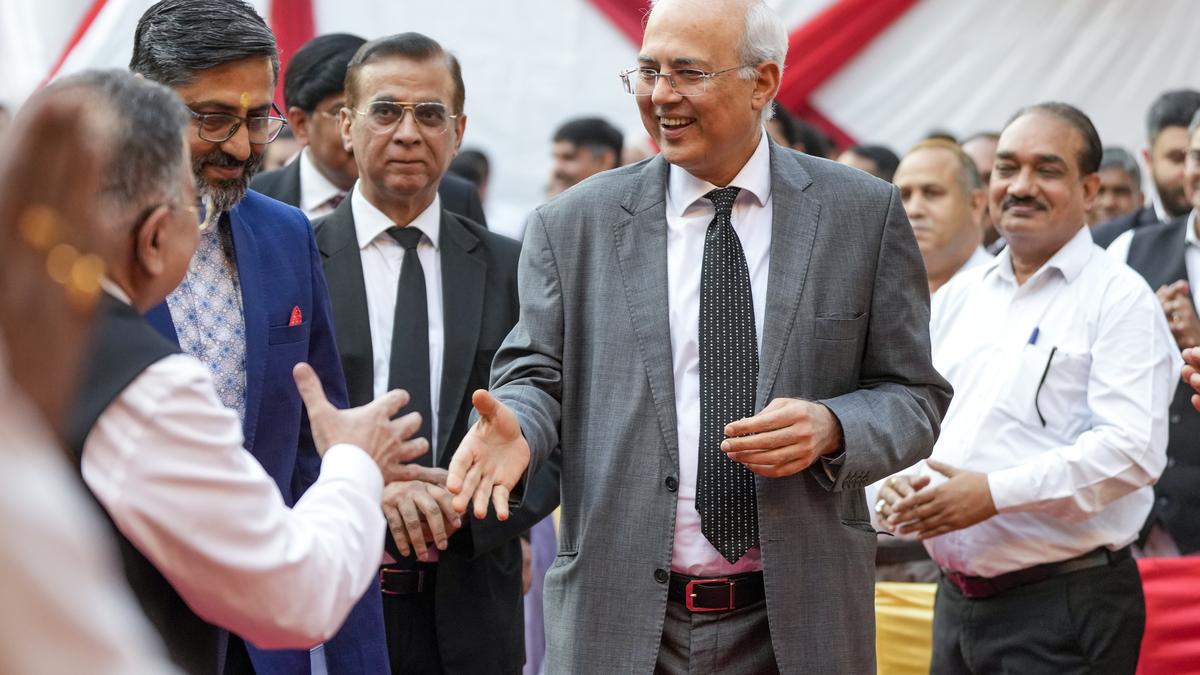 |
|
The Supreme Court Collegium, headed by Chief Justice of India Sanjiv Khanna, has made a significant recommendation: the appointment of Justice Manmohan, the Chief Justice of the Delhi High Court, to the Supreme Court bench. This recommendation, announced on November 28th, 2024, marks the first such decision under Chief Justice Khanna's leadership. Justice Manmohan's appointment, if approved, would address one of two vacancies currently existing in the Supreme Court, which has a sanctioned strength of 34 judges. These vacancies arose following the retirements of Chief Justice Khanna's predecessor, Justice D.Y. Chandrachud, and Justice Hima Kohli. The Collegium's resolution explicitly states that the recommendation considers the underrepresentation of judges from the Delhi High Court on the Supreme Court bench. Currently, only one judge represents the Delhi High Court on the apex court. Justice Manmohan's appointment would therefore rectify this imbalance, ensuring a more geographically diverse representation.
Justice Manmohan's impressive career trajectory has undoubtedly contributed to his nomination. He holds the second position in the all-India seniority ranking of High Court judges and is the senior-most judge currently serving in the Delhi High Court. This seniority, coupled with his experience and reputation, strengthens the Collegium's justification for his appointment. It's notable that both Justice Manmohan and Chief Justice Khanna share a common origin: the Delhi High Court. Chief Justice Khanna's own journey to the Supreme Court, from his position as a senior puisne judge of the Delhi High Court in January 2019, provides a parallel to Justice Manmohan’s potential elevation. Justice Manmohan's history with the Delhi High Court began on March 13, 2008, when he was appointed as a judge. His ascension to Chief Justice came on September 29th of the current year, demonstrating a consistent upward trajectory in his career. The timing of his recommendation further underscores the urgency to address the vacancies and maintain the Supreme Court's full operational capacity.
The Collegium's decision-making process is critical to understanding the rationale behind the recommendation. The Collegium, composed of the Chief Justice of India and four senior-most judges, operates as a crucial body for judicial appointments. Their deliberations encompass a comprehensive evaluation of a candidate's judicial record, integrity, experience, and competence. The unanimous recommendation for Justice Manmohan signifies a collective agreement on his suitability for the Supreme Court. The explicit mention of regional representation in the Collegium's resolution highlights the importance of ensuring a balanced and diverse composition of the Supreme Court. This reflects a commitment to representational fairness and the avoidance of any potential bias based solely on seniority or proximity to the Supreme Court's existing composition. The process also highlights the inherent balance within the Collegium system between meritocratic considerations and the importance of geographical representation within the highest court of the land.
The appointment process, however, does not end with the Collegium's recommendation. The government now needs to act upon the recommendation. The government has the right to accept, reject, or even send the recommendation back to the Collegium for reconsideration. This stage of the process often attracts scrutiny and debate, particularly when there are dissenting opinions or perceived political influences at play. While the Collegium's recommendation carries substantial weight, the final decision rests with the government, and the interplay between these two bodies often shapes the public discourse around judicial appointments. This complex interaction underscores the delicate balance between the judiciary’s independence and the executive branch's role in the appointment process. The transparency surrounding the process remains a key element for maintaining public trust and confidence in the impartiality and integrity of the nation's highest court.
The appointment of Justice Manmohan will have significant implications for the functioning of the Supreme Court. It will restore the court to its full sanctioned strength, allowing for more efficient handling of the substantial caseload. Furthermore, his appointment is expected to provide a different perspective and possibly new insights into legal proceedings, given his experience at the Delhi High Court. This perspective, drawn from handling different types of cases at the High Court level, is valuable in enhancing the Supreme Court’s ability to address diverse legal issues. The addition of a judge from a specific High Court can also have a broader impact on the legal landscape, potentially influencing the interpretation and application of laws across the nation. This underscores the importance of careful consideration in judicial appointments and the vital role that the Collegium plays in maintaining the integrity and effectiveness of the Indian judiciary.
